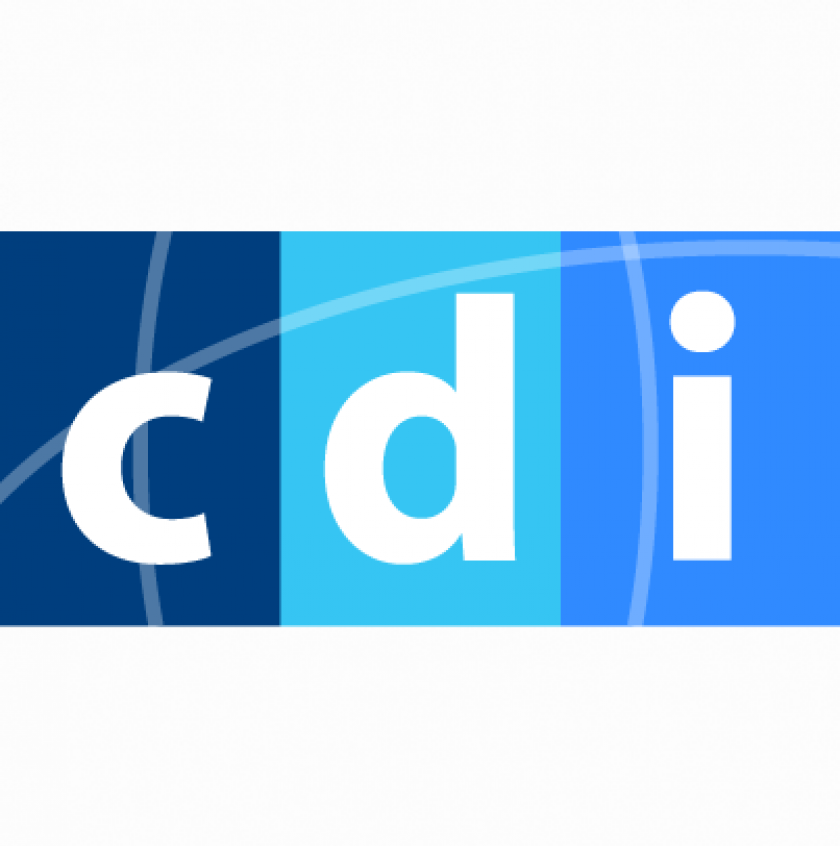
The Center for Digital Inclusion (CDI) at the iSchool will close as a separate entity effective July 1, 2018, subject to the approval of the Senate of the Urbana-Champaign campus. Its programs and initiatives will continue in the form of a distributed research model.
The mission of CDI is to foster inclusive and sustainable societies through research, teaching, and public engagement about information and communication technologies (ICTs) and their impacts on communities, organizations, and governments. The iSchool remains committed to this mission, which will continue to be fundamental to the work of faculty.
"Equitable information access, use, and capacity building remain key concerns of the iSchool in teaching, research, and engagement," said J. Stephen Downie, professor and associate dean for research. "We believe that excellent scholarship and pedagogies will emerge from newly forming clusters and collaborations on campus—efforts that don’t fit neatly into a 'center' model."
In lieu of a center, iSchool faculty members will continue to focus their research, teaching, and engagement on crucial issues of digital equity and social justice in the information professions.
Martin Wolske, CDI interim director, will collaborate with iSchool faculty and alumni to support ongoing dialogues and spark new discussions about digital equity, including the workshop, "New Ways of Thinking about Digital Equity," which will be held on April 17 as a preconference event for Net Inclusion 2018. Wolske, iSchool senior research scientist and senior lecturer, will continue to teach courses addressing issues of social inclusion and exclusion, particularly as they relate to technology use in support of individuals and their communities; these courses include Community Engagement (IS 418), Introduction to Networked Systems (IS 451), Informal Learning Spaces and Pedagogies (IS 490IL), and Community Informatics Studio (IS 490ST).
CDI was launched in 2013, building on the legacies of Prairienet (1994-2008) and the Community Informatics Initiative (2007-2012). Jon Gant, former research associate professor at the iSchool, was the CDI founding director; Gant left Illinois in 2016 to become dean of the School of Library and Information Sciences at North Carolina Central University. Through Gant's leadership, CDI played a crucial role in the efforts of Urbana-Champaign Big Broadband (UC2B) to establish a fiber-optic broadband network in the local community, promoting equitable access to high-speed Internet service.
CDI-affiliated faculty and their research areas include:
- Abdul Alkalimat (emeritus)—Digital inequality, community informatics, African American intellectual history
- Catherine Blake—Biomedical informatics, natural language processing, evidence-based discovery, learning health systems, socio-technical systems, data analytics, literature-based discovery
- Bertram (Chip) Bruce (emeritus)—Community informatics, environments to support inquiry-based learning, collaboration in knowledge making, new literacy practices
- Nicole A. Cooke—Human information behavior, particularly in an online context; diversity and social justice in librarianship; LIS education and pedagogy, particularly in the online environment; information literacy and instruction
- Les Gasser—Social informatics; collective, distributed, and self-organizing information systems; conceptual foundations of information; extreme-scale distributed simulation; origins and use of information in biological systems
- Elizabeth Hoiem—Children's literature and material culture, British literature, history of education and literacy, social history, child labor, thing theory, fantasy, science fiction, science and technology in literature, automata, digital humanities pedagogy
- Brant Houston (Journalism)—Nonprofit journalism newsrooms, digital tools for news-gathering, new business models for journalism
- Emily Knox—Information access, intellectual freedom and censorship, information ethics, information policy, print culture and reading practices
- Rachel M. Magee—Teens, youth, everyday life, technology use and non-use, youth services, social computing, values and design
- Ann Peterson-Kemp (emerita)—Community informatics, community inquiry
- Michael Twidale—Computer-supported cooperative work; collaborative technologies in digital libraries and museums; user interface design and evaluation; open-source usability; information visualization; ubiquitous learning; social learning of technology; rapid prototyping and evaluation
- Kate Williams—Technology use in local communities and by ordinary people; public libraries past, present, and future; social capital as a crucial resource in the information revolution